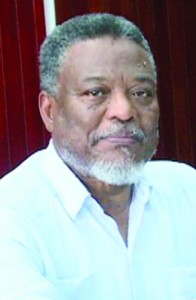
Prime Minister Samuel Hinds on Monday confirmed that there will be no increase in electricity tariffs for Linden, Region 10.
In fact, the government has set aside Gy$2.900 billion in the 2014 national budget to subsidise the cost of electricity in Linden, while neighbouring Kwakwani Utilities Inc will receive Gy$300 million, a total of Gy$3.2 billion in subsidies, once there is no objection from the A Partnership for National Unity (APNU) and the Alliance For Change (AFC) in the National Assembly.
Prime Minister Hinds said the provision of the subsidy for Region 10’s Electrification Programme is in keeping with the August 21, 2012 agreement signed between the government and the Region 10 Democratic Council.
In that agreement, the parties agreed that electricity tariffs within Linden will remain frozen until the completion of the work of the Linden Technical Committee, which was birthed out of the agreement as well.
The technical committee is expected to review the existing provision and consumption of electricity in Linden, including the history, the costs, the tariff structure, and subsidies. In keeping with the Terms of Reference (ToRs), the committee is also expected to conduct a study on the region’s economic circumstances and its ability to facilitate an increase in electricity costs, as well as consider the advantages and disadvantages of integrating Linden into the national grid.
Standstill
However, the work of the committee is at a standstill for want of a chairperson. Since the original chairman, Narvon Persaud resigned, the parties have failed to agree on another chairperson. The government had identified an individual to fill the post, whom the region had rejected.
“Concerning the agreements which settled the unrest in Linden, they froze electricity tariffs to where they were. The agreements stated that there would be no consideration of any increases until after the various committee reports would have been received, studied, and discussed. This position could not be more comfortable for the regional chairman and for APNU,” the prime minister posited.
In response to allegations that the government has abandoned the agreement, Hinds said, “The agreement has certainly not been barren.”
In March 2012, the prime minister had announced that there would have been an increase in electricity tariffs in Linden from July 1, 2012, stating that government was unable to further subsidise electricity in the mining town. He had said the increase would have been gradually implemented, but the proposed tariff hike was rejected by the people of Linden and by extension, Region 10.
Through the Linden Electricity Company Incorporated (LECI), customers on the Mackenzie shore would have received their first 50 kilowatts per hour (kWh) at Gy$5 per kWh, the current rate, but further consumption would have seen them paying Gy$50 per kWh, while businesses would have paid Gy$65.
On the Wismar shore, under the Linden Utility Services Co-op Society Limited (LUSCSL), customers would have experienced similar increases. Their current rates stand at Gy$7 per kWh for residential customers and Gy$15 per kWh for commercial consumers.
The announcement had resulted in a series of protests. The events escalated on July 18, 2012 when the police and protesters clashed at the Mackenzie/Wismar Bridge, resulting in the shooting to death of three Lindeners.
After more than a month of unrest, the government and the region signed the August agreement putting an end to the looting, incidents of arson, and the blockade of major roads.



